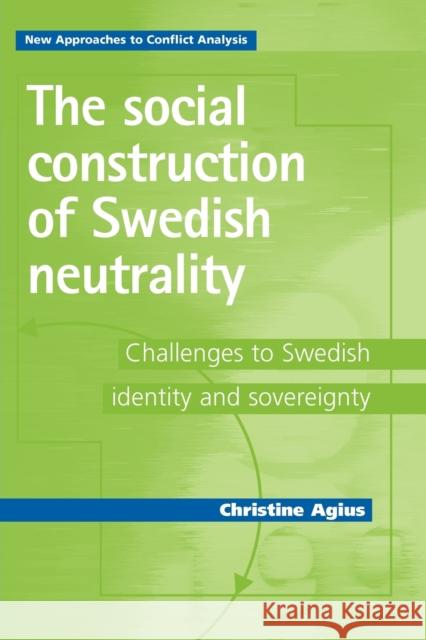The Social Construction of Swedish Neutrality: Challenges to Swedish Identity and Sovereignty » książka
The Social Construction of Swedish Neutrality: Challenges to Swedish Identity and Sovereignty
ISBN-13: 9780719071539 / Angielski / Miękka / 2012 / 264 str.
The Social Construction of Swedish Neutrality: Challenges to Swedish Identity and Sovereignty
ISBN-13: 9780719071539 / Angielski / Miękka / 2012 / 264 str.
(netto: 97,15 VAT: 5%)
Najniższa cena z 30 dni: 95,39
ok. 30 dni roboczych
Dostawa w 2026 r.
Darmowa dostawa!
Since the end of the Cold War, and particularly in the post-9/11 international environment, neutrality has been conceptualised as a problematic subject. With the end of bipolarity, neutrality as a foreign and security policy lost much of its justification, and in the ongoing 'War on Terror', no state, according to the Bush Administration, can be neutral. However, much of this debate has gone unnoticed in IR literature. This book, newly available in paperback, examines the conceptualisation of neutrality from the Peloponnesian War to the present day, uncovering how neutrality has been a neglected and misunderstood subject in IR theory and politics. By rethinking neutrality through constructivism, this book argues that neutrality is intrinsically linked to identity. Using Sweden as a case study, it links identity, sovereignty, internationalism and solidarity to the debates about Swedish neutrality today and how neutrality has been central to Swedish identity and its world-view. Rather than viewing Swedish neutrality as the policy of isolationism or small and weak states, this book argues that Swedish neutrality is an embedded part of Swedish identity, and its domestic sources stem from the ideology and vision of Social Democracy. Far from isolationist, Sweden practiced an active form of neutrality, acting as the 'moral voice' of the global community. Identities are malleable, however, and this book examines the shifts in Swedish identity and neutrality. European integration, globalisation, new threats to security, and the arguments about decline of the state and sovereignty have impacted on neutrality. Whilst many are quick to herald its demise, this book argues that the norms and values of active neutrality can be reworked to contribute to a more cosmopolitan international order.











